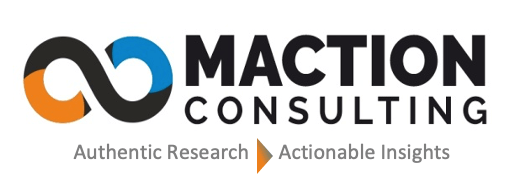Understanding your target population and developing marketing tactics tailored to their unique demands requires market segmentation, which is a critical first step. The appropriate questions must be asked to gain significant insights into consumer behavior, preferences, and traits to segment your market efficiently. This blog will examine your market segmentation study’s top five question types. These questions help you collect thorough information through your market research company. They enable you to design successful marketing campaigns and make informed judgments.
1. Demographic Questions
Demographic inquiries are the cornerstones of understanding your target audience regarding market segmentation. By gathering information on variables like age, gender, income, education, and marital status, a demographic profile can be created. This profile exposes important patterns and trends within particular groups. With these findings, you can adjust your marketing strategies and messages to connect with your target market successfully. Let’s discuss the value of demographic inquiries and offer some crucial questions to include in your market segmentation survey analysis.

Examples of demographic questions include:
- What is your age?
- What is your gender?
- What is your ethnicity?
- What is your race?
- What is your marital status?
- What is the highest level of education you have completed?
2. Psychographic Questions
Effective marketing requires understanding your target market’s desires and motivations. Psychographic questions become relevant in this situation. These inquiries delve into your consumers’ psychological and lifestyle characteristics, revealing their views, interests, beliefs, values, and behavioral patterns. Let us now examine the effectiveness of psychographic questions in survey analysis and how they may give you insightful knowledge about your target market’s thinking, empowering you to develop persuasive marketing campaigns that speak to their needs and goals.

Examples of psychographic questions include:
- What causes or issues are most important to you?
- What are your core values in life?
- What are your religious or spiritual beliefs?
- What are your favorite leisure activities?
- Which hobbies do you enjoy the most?
- What type of entertainment do you prefer?
3. Behavior-based Questions
Analyzing customer behavior regarding market segmentation is essential for creating winning marketing plans. Insightful information on buying habits, brand loyalty, and customer satisfaction can be gleaned via behavior-based questions. Businesses may improve their understanding of how consumers interact with their goods and services, spot areas for improvement, and hone their marketing strategies to better serve their requirements by posing the proper questions.

Examples of behavior-based questions include:
- Tell me about a time when you faced a challenging situation at work and how you handled it.
- Give me an example of a time when you had to work as part of a team to achieve a goal.
- Describe a situation where you had to deal with a difficult coworker or customer and how you managed it.
- Tell me about a time when you made a mistake at work and how you resolved it.
- Give me an example of a project or task that required you to think creatively or outside the box.
- Describe a situation where you had to prioritize multiple tasks or deadlines and how you managed your time.
4. Attitudinal Questions
Consumer attitudes, perceptions, and opinions regarding your brand, your rivals, and your industry are all covered in attitude questions. Attitudinal questions provide useful insights for increasing customer experience, refining marketing content, and removing potential barriers by capturing the underlying attitudes, motivations, and preferences that underlie purchasing decisions.

Examples of attitudinal questions include:
- On a scale of 1 to 10, how satisfied are you with your current job?
- Do you agree or disagree with the statement: “Climate change is a pressing issue that requires immediate action”?
- How likely are you to recommend our product/service to a friend or colleague?
- How strongly do you agree or disagree with the statement: “Social media has a negative impact on society”?
- How important is work-life balance to you when considering a job opportunity?
- Do you prefer traditional classroom learning or online learning for acquiring new skills?
5. Open-ended Questions
When it comes to market segmentation research, open-ended questions have a significant impact. Unlike closed-ended questions, which are limited to a set number of viable answers, open-ended questions enable respondents the freedom to express their thoughts and opinions in their own words. You can learn valuable insights into consumer behavior by probing their minds with open-ended inquiries that may go beyond what can be learned from conventional questioning techniques.

Examples of open-ended questions include:
- What are your thoughts on the current state of the education system?
- How do you think technology has impacted the way we communicate?
- What are some potential solutions to climate change?
- Can you describe your most memorable travel experience and how it affected you?
- In your opinion, what are the key factors that contribute to a successful team?
- What are your personal goals and aspirations for the next five years?
Conclusion
You will comprehensively grasp your target audience using these five question types in your market segmentation study. Including varied question types in your market research company surveys can be really helpful. While psychographic questions dive into their objectives and ideals, demographic questions give the fundamental traits. Attitudinal questions elucidate their beliefs and preferences, and behavior-based inquiries disclose their purchasing habits and brand loyalty. Finally, open-ended questions allow responders to offer detailed, insightful responses. You may create customized marketing tactics that resonate with your clients, boost brand loyalty, and promote business success by obtaining thorough data using these questions.
Maction is a leading market research agency that provides the best technology-driven survey platform available. With our considerable experience, we can help you gain the suitable consumer insights necessary for designing your creative strategy.
Contact the expert consultants at Maction Consulting today.


